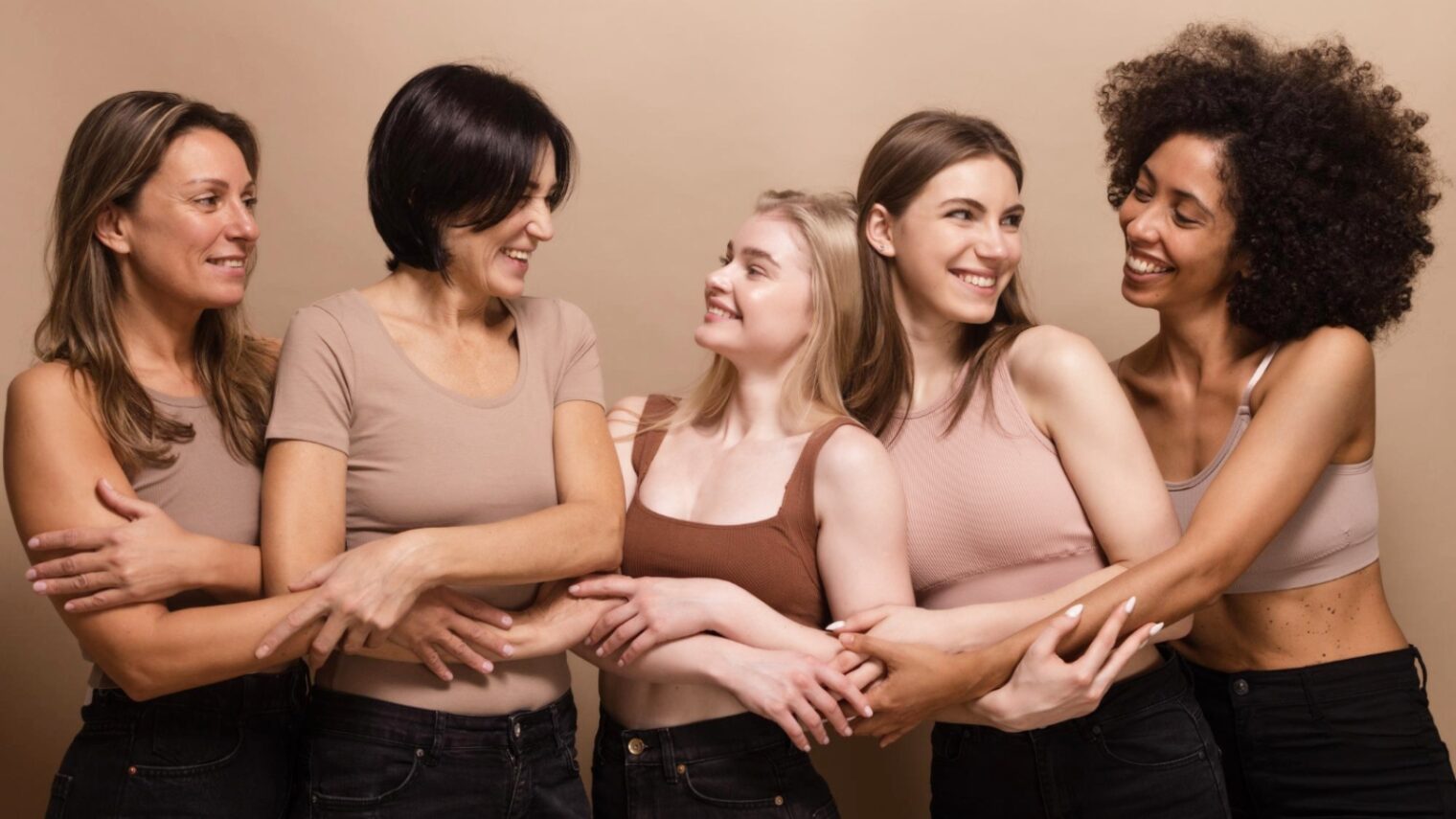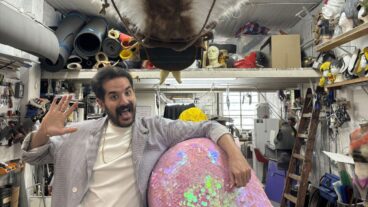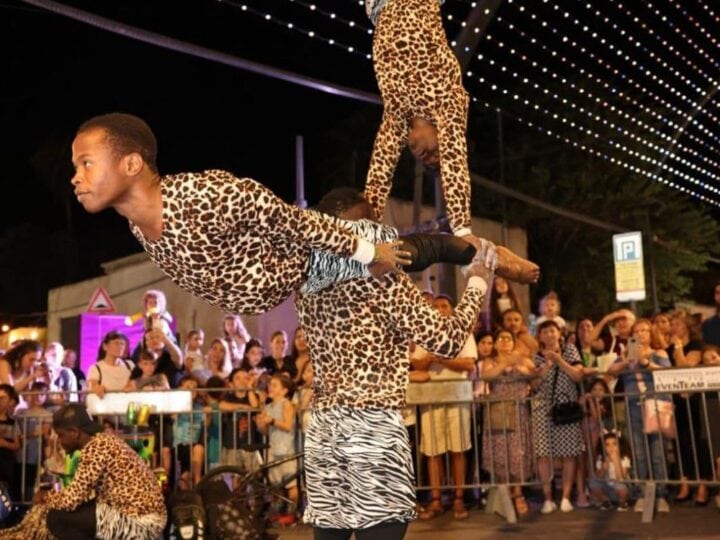In 2012, Israel was hailed for setting a precedent around the world by outlawing the use of underweight fashion models, as defined by a specific body mass index (BMI).
Motivated by an alarming rise in eating disorders, the groundbreaking legislation reflects the way cultural changes have shaped how women look or measure their beauty throughout history.
Ten years later, as global gender norms and body stereotypes are changing, has Israeli society succeeded in setting beauty standards that no longer mold women into carbon-copied Barbie dolls?
To get a perspective on this issue from Israel’s trendsetting city of Tel Aviv, ISRAEL21c asked local influencers, bloggers, makeup artists and modeling agencies to share their insights.
‘I stopped running from the camera’
Tali Arbel, a model and journalist for Walla Fashion, struggled with self-love as a young woman.
“I hated my entire image,” she tells ISRAEL21c.
“When I turned 20, my father died suddenly. I used food to cope with his death and I developed an eating disorder,” said Arbel. “I gained a lot of weight and couldn’t even recognize myself.”
It took personal strength and a changing beauty standard to help Arbel find herself again.
“I stopped running from the camera. I started surrounding myself with other empowering women. I took a personal styling course, and I joined a mentoring program with Ray Segev, who was the first plus-size model who really made it in Israel.”
Segev’s modeling agency at the time, Juicy, hired Arbel at age 40, two years ago.
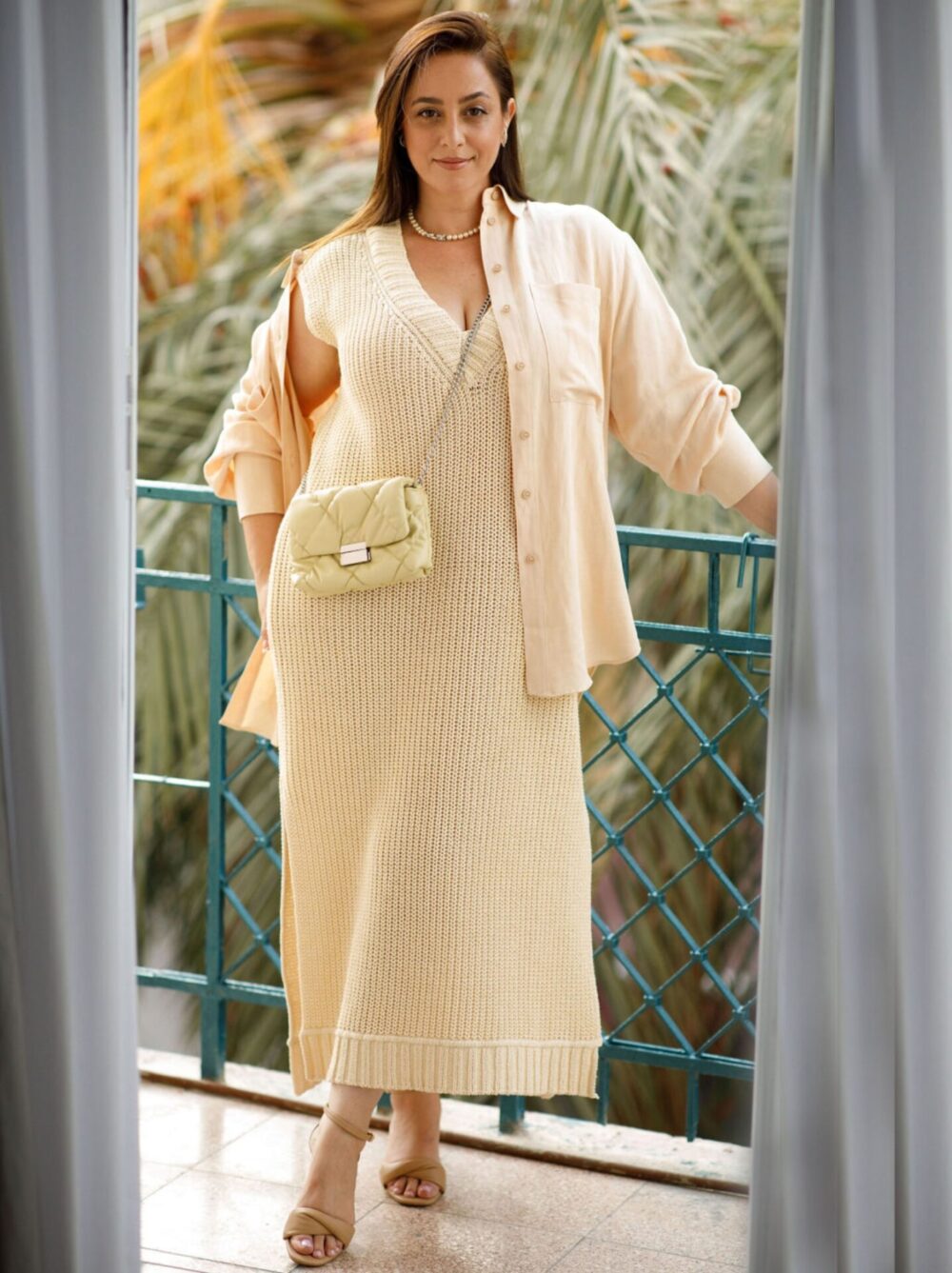
“After everything I’d been through, I felt on top of the world after an agency signed me. I began to feel worthy,” explained Arbel. “Many jobs were open for me because plus-size models were on trend.”
Arbel said she can’t wear every trend she writes about “because they’re meant for a specific body type or age,” but fashion trends in general are now adapting to her body type.
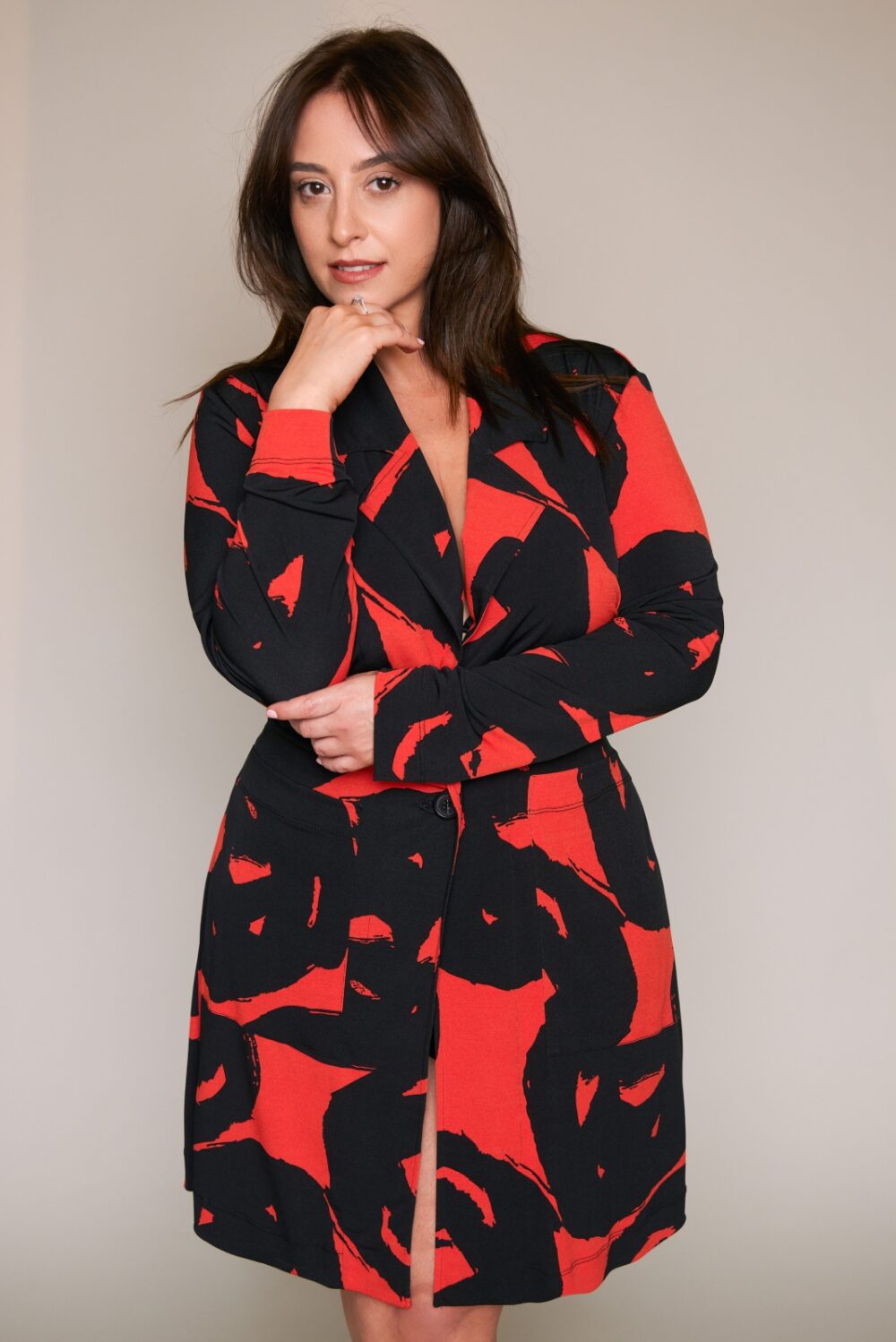
“Women tell me they can identify themselves when they see my body type because they know how the clothes will fit them.”
She advises, “You can always find your way in these trends. My belly was taboo for many years, but now I’m starting to embrace it. Crop tops are trending so I’m trying to wear them more! It’s freeing to not think about any standards. Trends can liberate us.”
Still, she confided, “I don’t wake up every day feeling perfect. It’s a continuous journey of self-love. But I had to do a major transition.”
It’s not about size anymore
Makeup artist and beauty blogger Diti Messer also went through a profound transformation.
“I lived in an apartment without a mirror for almost three years. I only had a small mirror in the bathroom but not for my body. I made this change after being in a relationship with someone who told me I was fat. I stopped judging and critiquing myself and when I stopped that, good things happened.”
View this post on Instagram
Messer comments that while top models used to be skinny, “in 2022, you see women with bigger butts or smaller breasts. It’s not about size anymore, it’s about proportions. Consider the Kardashians; they aren’t necessarily skinny but they have nice proportions.”
Social media e-commerce expert Meital Baranes (@Mitipretty) agrees.
“Once the Kardashians came into the picture everything changed. Beauty, hair color, and body type changed. They brought in the curvier body and the Armenian look of long black hair.”
Blogger and content strategist Yael Kimelman says it comes down to self-love.
“I have never felt pressure to look a certain way because I have a high opinion of myself,” she says. “Even though I’m getting older I don’t feel a need to change anything.”
View this post on Instagram
Unique looks bring success
“In recent years, the fashion industry has started opening up to more diverse looks that until now went unnoticed,” said Kama Idan, personal manager for Tel Aviv’s T4You Modeling Agency.
“In the fashion industry, there isn’t a specific look that dominates the field. It’s the uniqueness of each model that brings them success.”
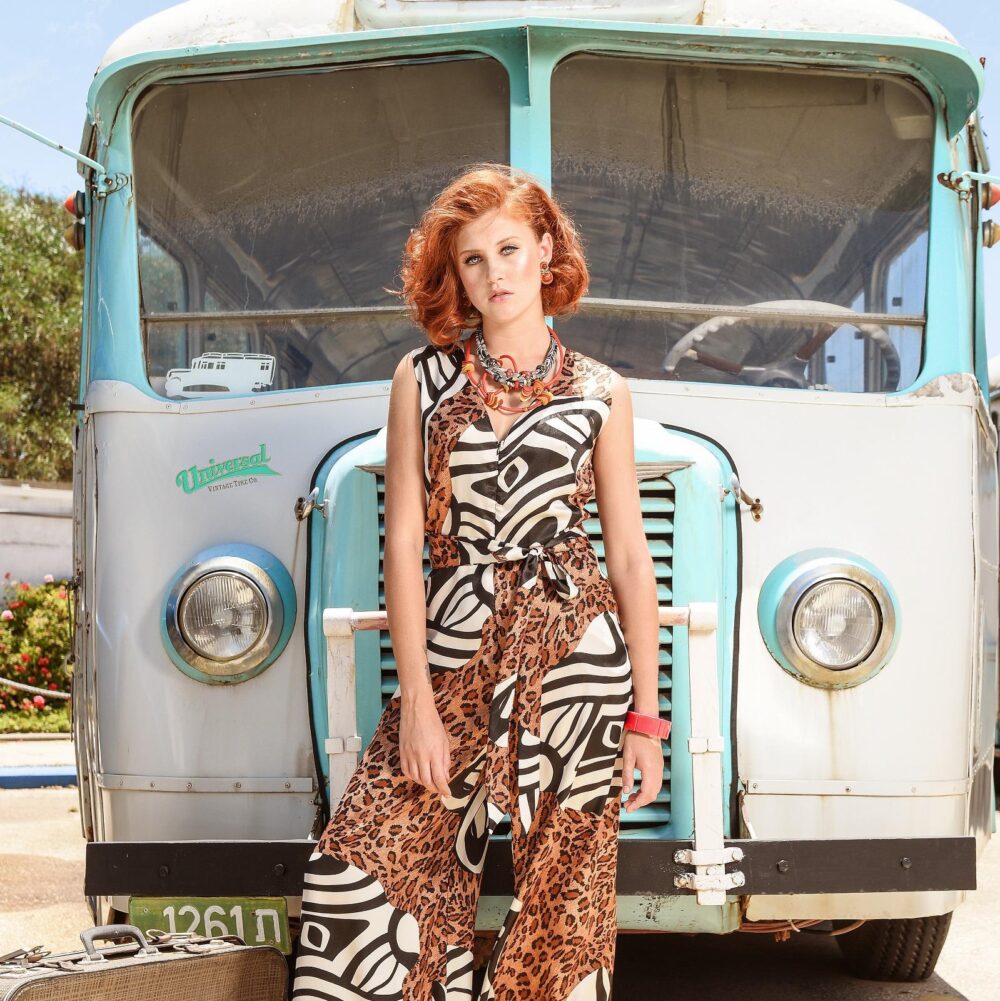
Likewise, the owner of HH Models Management, Oren Mesika, says, “I don’t think there is a specific standard. Of course, we need to know what clients look for in a model, but there isn’t one profile.”
Messer has noticed that fashion brands now seek models with interesting features or eyes that tell a story. “If she can’t look at the camera in an interesting way, it won’t work.”
That said, there’s still room for improvement in standards in the modeling world.
“Many designers don’t embrace shorter models,” Arbel noted. “I’m not very tall and sometimes brands don’t want me because of this. It’s frustrating because these are strict standards.”
Laid-back attitude
Outside of the modeling world, Messer has noticed that more Israeli women are getting minor cosmetic procedures such as lip fillers and Botox.
“These procedures have gotten cheaper, so now every woman can afford it,” Messer tells ISRAEL21c.
Arbel says that if a woman thinks a small procedure will improve her confidence, she should go for it, but must consider how this decision may influence younger girls: “They can send the message that you have to look a certain way and need a procedure to fix it.”
In a city like Tel Aviv, women may find it easier to embrace their unique look.
“The beauty of Tel Aviv is that it’s a mix of beauty types. In Israel generally, there are people from around the world with different roots,” Baranes observed.
“There is a laid-back approach when it comes to beauty and fashion standards. Even the dress code is more chill in the professional world [in Tel Aviv],” said Kochavit Akunis from the fashion blog EIGHT30.
Akunis writes about how women can navigate their feminine or “beautiful” side in a masculine professional atmosphere.
View this post on Instagram
“I think a lot of women who want to succeed in a male-dominated professional field dress conservatively because they’re afraid their colleagues would judge their looks,” says Akunis.
“The idea behind my blog is that you can look bold, and you don’t need to avoid a feminine look even in a male environment.”
Akunis calls this philosophy “dress for success.” She advises women to “use your appearance and style to tell the world who you are.”




